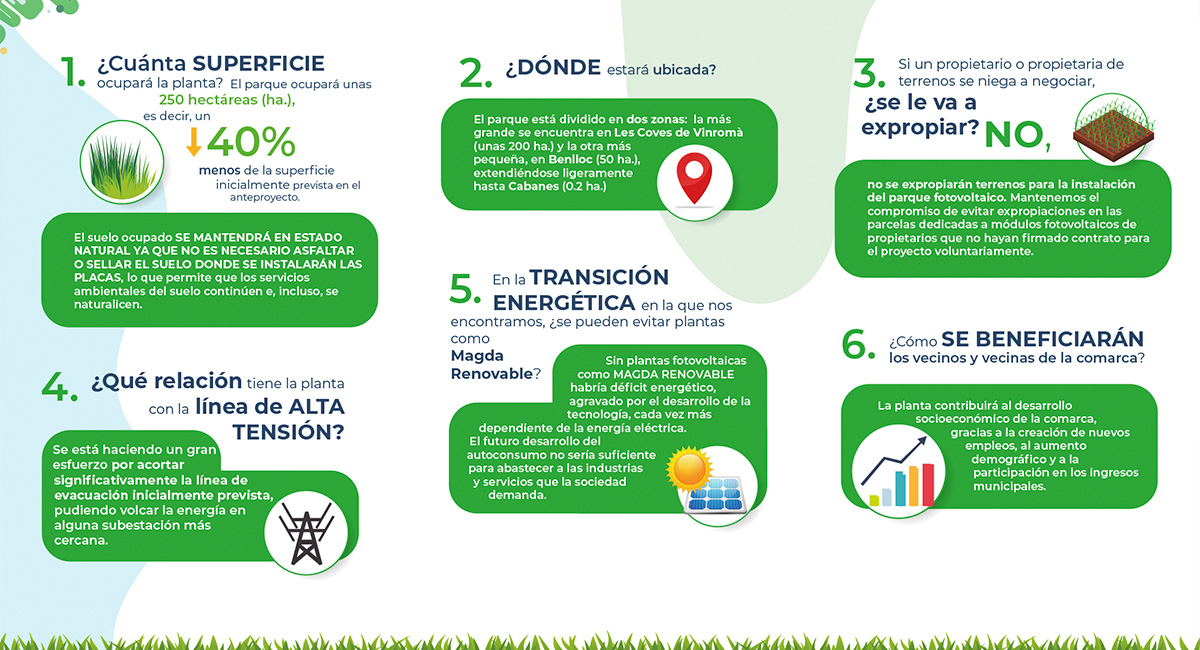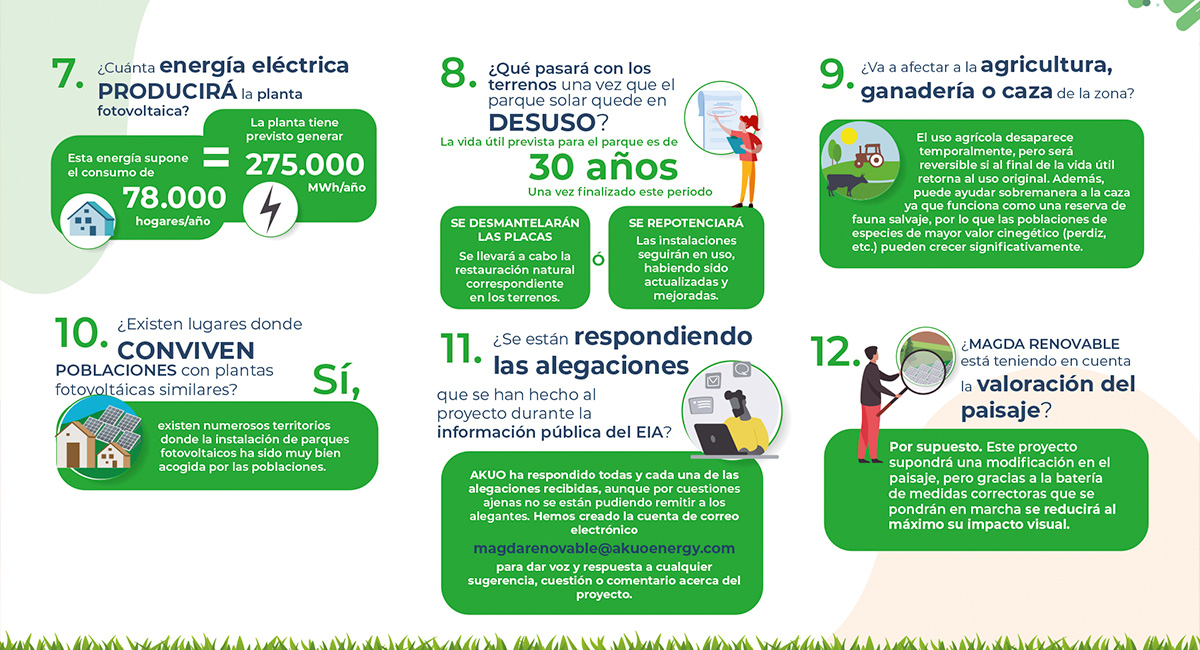

EHS Techniques was commissioned by an independent producer of renewable and distributed energy to advise on its social management strategy in obtaining and maintaining the social license and trying to reverse the social rejection of a photovoltaic park in Spain. A territorial diagnosis and the socioeconomic impacts of the project have been prepared, as well as a strategic communication plan and a plan for agreements and compensatory measures. To this end, stakeholders have been identified and contacted. Some actions proposed in the communication plan have also been carried out.
Project scope
The project required a comprehensive social performance and communication plan designed to diagnose the roots of opposition and re-establish constructive relationships with stakeholders.
EHS Techniques’ involvement included:
- Preparation of a territorial and socioeconomic diagnostic identifying the project’s perceived impacts and sensitivities.
- Development of a strategic communication plan, including key messages, engagement mechanisms, and transparency tools.
- Design of a plan for community agreements and compensatory actions, focused on shared local benefits.
- Stakeholder identification and direct engagement with community representatives, associations, and municipal authorities.
- Implementation of selected communication activities, ensuring continuous feedback and measurable impact on perception.
Methodology
The approach followed EHS Techniques’ core principles of listening, dialogue, and positive impact.
- Listening – Conducting interviews and consultations to understand local concerns, expectations, and opportunities.
- Dialogue – Facilitating open channels between the company and community to promote transparency and trust.
- Positive impact – Proposing tangible social and environmental actions that benefit the surrounding territory.
This structured process allowed the client to move from a reactive posture to a proactive and cooperative social management model.
Outcomes and added value
The intervention enabled the client to:
- Reframe its social strategy and communication with local actors.
- Reduce community resistance and prevent escalation of social conflict.
- Strengthen institutional relations with local administrations and stakeholders.
- Lay the groundwork for future cooperation and long-term acceptance of the project.
Closing statement
Through this project, EHS Techniques demonstrated its expertise in social risk management and community engagement for renewable energy projects, helping clients transform conflict into collaboration and move toward achieving a sustainable social license to operate.

 Español
Español